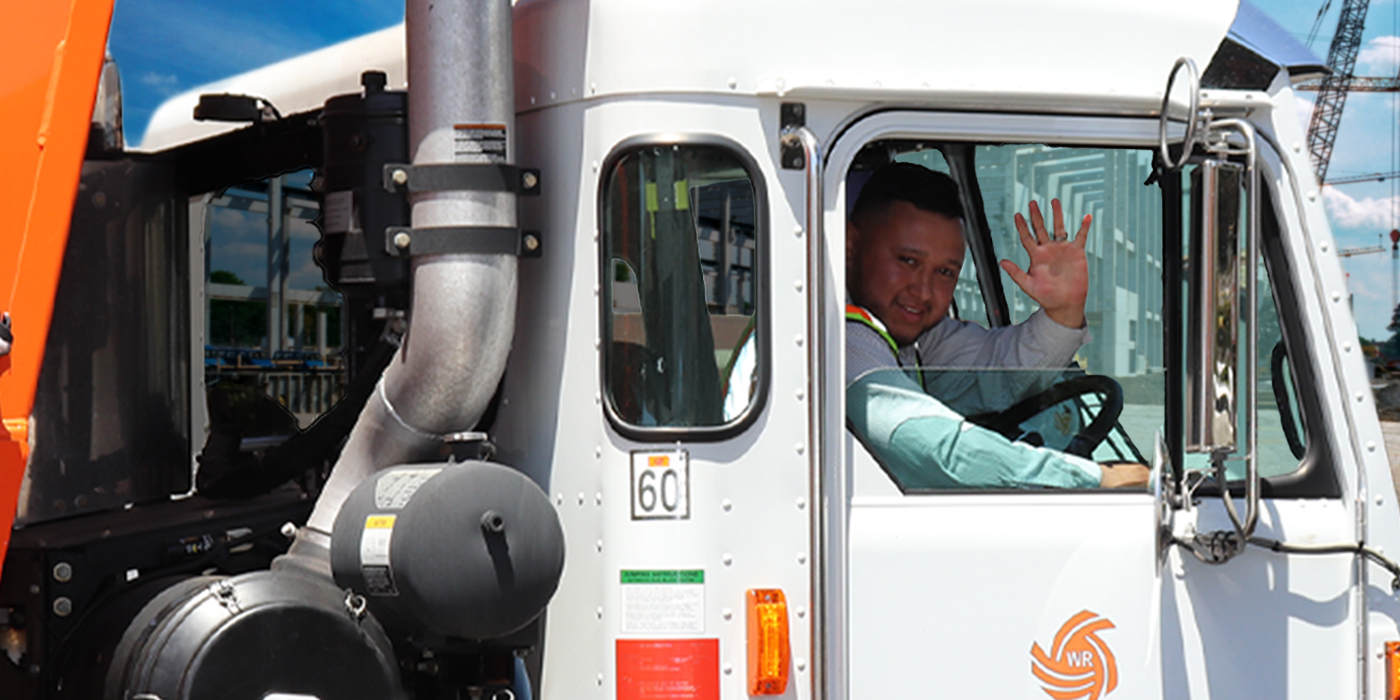Roll-Off &
Compactors

Recycling Requirements
for Construction, Demolition, and Renovation Projects
The State’s Green Building Code (2019 CALGreen) requires a minimum of 65% recycling for all debris removed as part of a remodel, construction, or demolition project. Local ordinances may be more strict and require recycling reports for all loads from a project. Make sure to specify “C&D” service when ordering temporary roll-off service so that we can ensure your compliance with this law. Recycling reports are available upon request.
Every City’s process is a little different, so it’s best to read up before pulling your permits
The project types and diversion requirements are:
| PROJECT TYPE | CRITERIA | REQUIRED DIVERSION | ||
| RESIDENTIAL | ||||
| New Construction (all permitted structures) | Low Rise (3 stories or less) | A) Equal to or greater than 65% diversion, OR B) Disposal of less than or equal to 3.4 pounds per square foot |
||
| High Rise (4 stories or more) | A) Equal to or greater than 65% diversion, OR B) Disposal of less than or equal to 3.4 pounds per square foot |
|||
| Additions or Alterations (all permitted projects) | Any addition/alteration that increases the building’s conditioned area, volume or size; does not include maintenance repair or additions [requirements only apply to and within the specific area of the addition/alteration] | Equal to or greater than 65% diversion | ||
| Demolition Only (all permitted structures of any size) | Structure is defined by the CA Building Code as that which is built or constructed. Applies to buildings designed for occupancy. | Equal to or greater than 65% diversion | ||
| NON-RESIDENTIAL | ||||
| New Construction (all permitted structures) | All permitted structures of any size (does not include additions, alterations or repairs) | A) Equal to or greater than 65% diversion, OR B) Disposal of less than or equal to 2 pounds per square foot |
||
| Demolition only | All permitted projects of any size | Equal to or greater than 65% diversion | ||
| Additions | Less than 1,000 sq.ft. | Equal to or greater than 65% diversion | ||
| 1,000 sq.ft. or greater | A) Equal to or greater than 65% diversion AND B) Universal Waste (i.e.batteries, e-waste, lamps, cathode ray tubes/glass, aerosol cans) must be managed properly and diverted from the landfill. |
|||
| Alterations | Less than $200,000 valuation | Equal to or greater than 65% diversion | ||
| Equal or greater than $200,000 valuation | A) Equal to or greater than 65% diversion AND B) Universal Waste (i.e.batteries, e-waste, lamps, cathode ray tubes/glass, aerosol cans) must be managed properly and diverted from the landfill. |
|||
| Soil Excavation and Land Clearing | All permitted soil excavation and land clearing projects | 100% of trees, stumps, rocks, and associated vegetation and soils resulting from land clearing (Exception: Reuse, either on or off-site, of vegetation or soil contaminated by disease or pest infestation). | ||
FAQs
Unfortunately, no. State law requires proper separation of solid waste by these major segments: recyclables, mixed organics, construction/demolition, and trash.
Temporary needs for a remodel, construction, or demolition project must comply with state recycling laws specific to C&D waste.
After all recycling efforts have been exhausted, the little bit that’s left over can be set out as trash. In addition, single commodity loads tend to cost you less, so be sure to recycle right!
The State’s Green Building Code (2019 CALGreen) requires a minimum of 65% recycling for all debris removed as part of a remodel, construction, or demolition project.
It also includes requirements to provide adequate space for recycling and organics separation at the point of generation and where it is stored for collection.
As a general rule, any toxic or hazardous waste will not be accepted. Items such as paint, herbicides, pesticides, asbestos, oil, appliances with Freon, and chemicals must be handled through a hazardous waste hauler.
Tires are also not permitted to be mixed with trash, recycling, or organics loads. If you have a lot of tires, we can pick those up as “tire-only” loads.
WR can collect e-waste for recycling, but it must be separate from mixed trash, recycling, or organics loads.
WR is only closed for six service days per year. For a schedule, visit our Holidays page.

